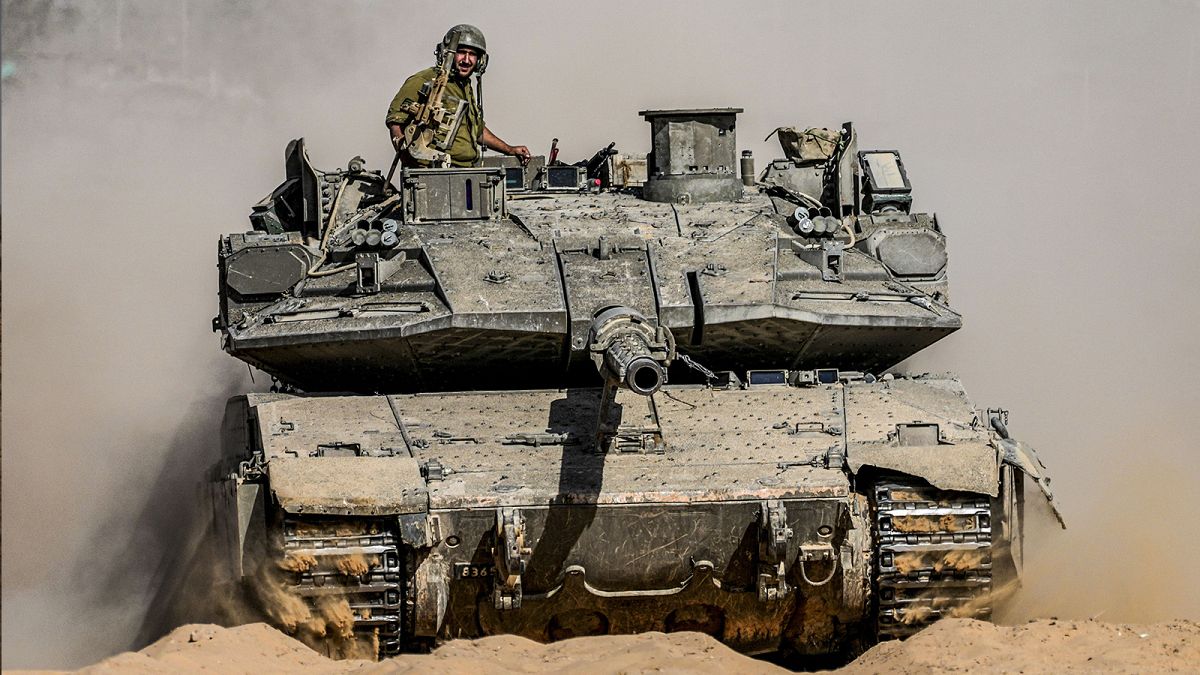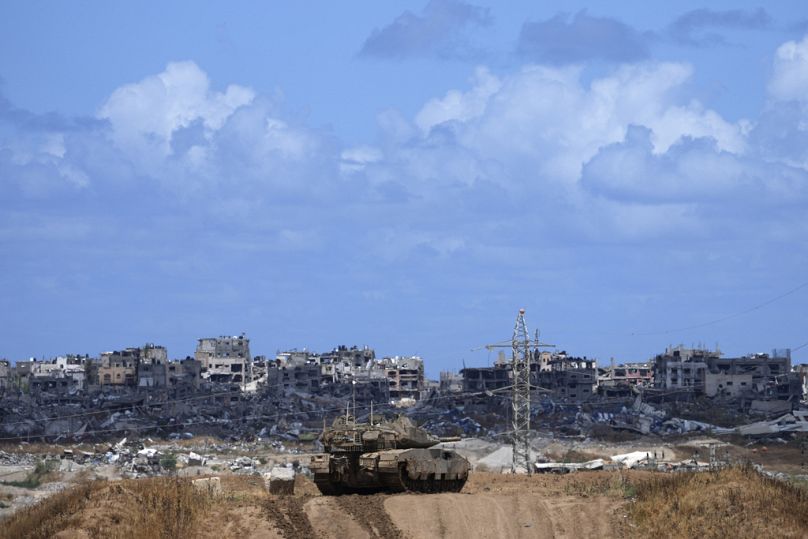Western nations, neighbouring countries and humanitarian aid organisations have all asked Israel to refrain from invading the southern Gaza Strip city — a move Israel said is to come 'in the near future'.
Amid growing tensions, the Israeli army has told tens of thousands of Palestinians to immediately evacuate parts of Rafah, indicating an imminent ground invasion and prompting a response from Hamas.
The militant Palestinian group has warned Israel that any military operation in the southern city of Rafah in the Gaza Strip "will not be a picnic".
Hamas said in a statement that Palestinian militant groups, led by Hamas’ military wing, the Qassam Brigades, “are ready to defend our people and defeat the enemy”.
According to an Israeli Defence Force statement, people in Rafah were told to move to Muwasi, an Israeli-declared humanitarian area near the coast. The army said it had expanded assistance into the area, including field hospitals, tents, food and water.
The IDF wrote on X, formerly Twitter, that civilians would be moved from the specified areas in eastern Rafah to the humanitarian area in the north and northeast.
Calls to temporarily "move" the humanitarian area will be conveyed through flyers, SMS messages, phone calls and media broadcasts in Arabic, according to a social media post published early Monday morning local time.
The warning over Rafah came as the IDF confirms Hamas fired rockets at the Kerem Shalom crossing, a corridor connecting southern Israel and Gaza, on Sunday, reportedly killing at least four Israeli soldiers delivering assistance.
Israeli tanks and troops were previously seen near the border with Gaza, raising fears that the long-promised ground offensive into the southern city of Rafah would start.
The Norwegian Refugee Council has condemned the Israeli army’s “forced, unlawful” evacuation order in Rafah, saying that it could lead to “the deadliest phase of this conflict.”
Israel's leadership under fire
The announcement on Monday complicated last-ditch efforts by international mediators to broker a cease-fire. Hamas and Qatar, a key mediator, have warned that an invasion of Rafah could derail the talks.
Neighbouring Egypt has urged Israel to “exercise maximum restraint and avoid further escalation at this extremely sensitive time in the process of cease-fire negotiations.”
The Egyptian Foreign Ministry issued a statement Monday saying it continues to communicate with all parties to “prevent the situation from getting worse or getting out of control”.
Germany and France have also reiterated their opposition to Israel's planned offensive on Rafah in the south of the Gaza Strip.
A spokesperson for the German Foreign Office said Monday that more than 1 million people are currently living in the area, adding that “these people need protection ... and the German government and the foreign minister have already said repeatedly in the past that a large-scale ground offensive on Rafah would be a humanitarian disaster.”
In Paris, the Foreign Ministry reiterated France's “firm opposition to Israel’s offensive in Rafah,” saying more than 1.3 million people are “in grave situation" after seeking shelter there.
France warned that “displacing civilian population by force constitutes a war crime under international law.”
In the US, the Biden administration has said there could be consequences for Israel should it move forward with the operation without a credible plan to safeguard civilians.
Around 1.4 million civilians relocated to Rafah to escape fighting elsewhere in the strip when the Israeli military declared it a safe zone.
Many live in squalid, makeshift encampments with little to no access to food, clean water or sanitation. The World Health Organization warned earlier this week that a ground offensive in Rafah would result in a "bloodbath".



